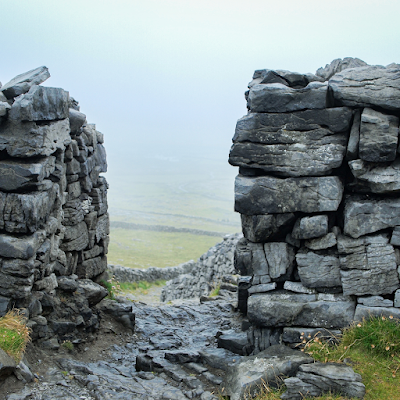Moments of Departure - Differences in Physiological Characteristics of the Recently Departed
A lot of
my local readers ask me how it is I came to become caught - as it were - in the
conversations around death and dying. The reality is that I can’t say for
certain how it happened, except that I’ve had the privilege of sitting at the
bedside of the departing more than 20 times throughout the course of my life. A
few were family, some were dear friends, and others were people whose names I
barely knew, but fate somehow saw to it that we were together in their last
moments, as if I needed to be there with them as much as they needed me there.
As with anything else,
experiencing these events over and over tends to provide you with the
opportunity to notice similarities and differences between them all. Since
every life is unique, every departure is, too, and nothing is predictable.
Every human makes this step in their journey in their own unique, meaningful
way, and to say that there is a one-size-fits-all approach to death and dying
is akin to saying the same thing about life and living. This is also true for
grief in those left behind, and this why I do not personally subscribe to the
famous theories that surround grief as proposed by Kübler-Ross. I simply don’t
believe that human lives follow this neat little pattern, and there is no way
to assume that what one person experiences on their grief journey another will
experience. There may be some commonalities, but to say that there is one
process that all people who grieve go through is to imply that there is no
diversity of experience.
In dying, though, there is one element that remains the same across every experience, seemingly no matter the culture or environment in which one dies. This particular element disregards religious beliefs, and is not dependent upon the personal ethos of the departed. This element is physiological; and it is noticeable in each death event that takes place: the emptying out of the body of life at the moment of biomechanical death.
In each event, in each
moment of departure, there are subtle - but noticeable - differences between
the physiology of the person before death versus their physiology after. Taking for instance my
father’s passing: between the moment he was breathing and the moment he ceased,
there were changes in his biology. His brow arched, and then relaxed again. He
took a deep, long exhale, and then was still. While life was leaving his body,
his face slowly began to lose its liveliness - the cheeks and nose clearly no
longer animated by whatever force had kept them dancing during his life. His
mouth grew slack, and his arms and legs seemed weighted and cumbersome, since
their musculature no longer had power. It’s like someone turned the engine off;
and the vessel was no longer receiving power from its supply.

Our journey beyond our physical bodies at the moment
we pass on most likely depends entirely upon our view of it.
Of course, in a very real sense this is true. The heart stopped; the breathing stopped, and there were no more biorhythms to monitor. So yes, the engine lost its power. But what about 10 minutes after biomechanical death? What about an hour? I saw with his body in the hospital room for close to that long until they came and asked me to leave since the coroner had to pronounce him dead. During that time, his countenance changed from lifelessness to almost unrecognizability - even for his own kin. By the time I left, it was clearly no longer my father laying there in the bed. I knew that the body that remained had once housed him - and technically speaking I could recognize the features that had once been his, but he was no longer present there. This same experience has been repeated in each and every event to which I’ve been privy. The moment of transition from life presents a slow metamorphosis for the remains - the animated presence of the consciousness of the individual has clearly departed, and the corpse left behind loses its plasticity and mobility - so that it becomes nothing more than a shell; like taking off a coat, perhaps.
Perhaps, too, it is like driving an automobile. If I drive a car, I occupy the seat of power in it - I command its direction, its movement, etc. I even help control its fuel supply. But I am separate from the car; and without me, the car will remain inert and useless. It can only move if I propel it through my own desire. Is this what consciousness is? Is it the driver of our vehicle? Without it, are we rendered inert and lifeless, with no driver? I believe that the answer to this question is yes. And I believe this further implies that our life is not a matter of electrons and blood vessels; but it is maybe a matter of light and energy - energy that is limitless and unbounded, that returns to its source when it exits our vessels.

